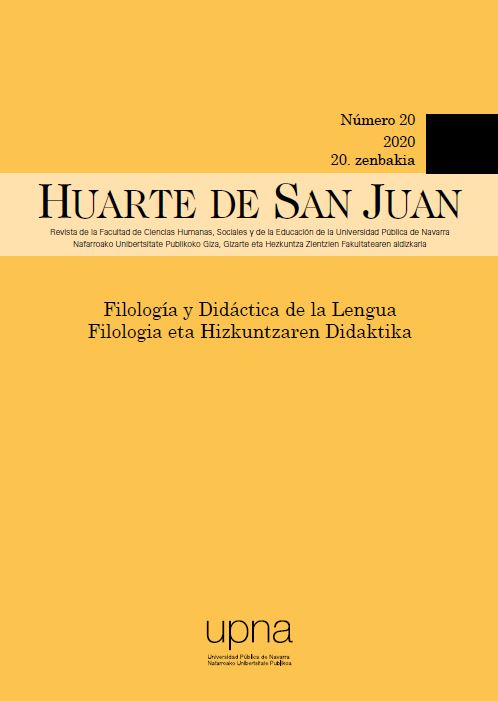The McOndo movement and the poetics of Rodrigo Fresán, an overview
DOI:
https://doi.org/10.48035/rhsj-fd.20.2Keywords:
Latin American literature, McOndo, Rodrigo Fresán, national literature, cosmopolitan literature, logic irrealismAbstract
The aim of this research is to study the place occupied by the literary movement McOndo in the eyes of the critic, the problems with regard to the issue of the canon and nationalism and cosmopolitism as literary topics. In order to do that the research is going to put into perspective the poetics of Rodrigo Fresán, one of the authors who was part of the socalled movement McOndo. Using the analytic
method, this research recounts the critical problems caused by the emergence of a literary movement like McOndo. The contrast of opinions and the demonstration of the marginality of an author like Rodrigo Fresán are part of this research. In general, regarding to the literary issues shown in the poetics of Rodrigo Fresán, this research allows to study his place in the canon and the critical opinion.
Downloads
References
Bloom, H. (1995). The western canon: the books and school of the ages. New York: Riverhead books.
Borges, J. L. (1998). La memoria de Shakespeare. Madrid: Alianza editorial.
Brown, A. (2010). Cyborgs in latin america. Palgrave McMillan US.
Carpentier, A. (2003). Los pasos recobrados: ensayos de teoría y crítica literaria. Caracas: Biblioteca Ayacuch.
Fornet, J. (2005). Nuevos paradigmas en la narrativa latinoamericana. Latin american studies center, working series, 13.
Fresán, R. (2014). Mantra. Barcelona: Penguin Random House.
Fresán, R. (2017a). El fondo del cielo. Barcelona: Literatura Random House.
Fresán, R. (2017b). Jardínes de Kensington. Barcelona: Literatura Random House.
Fresán, R. (2017c). La parte inventada. Barcelona: Literatura Random House.
Fresán, R. (2018). Historia argentina. Barcelona: Literatura Random House.
Fuguet, A. y Gómez, S. (Eds.). (1996). McOndo. Barcelona: Mondadori.
Gaffoglio, L. (2014). Rodrigo Fresán: escribir hoy es más arduo, cansador y lento, pero también es más interesante. La nación, 5 de Mayo.
Hargrave, K., y Seminet, G. S. (1998). De Macondo a «McOndo»: nuevas voces en la literatura latinoamericana. Chasqui: revista de literatura latinoamericana, 27(2), 14-26.
Padilla, I. (2004). McOndo y el crack: dos experiencias grupales. Palabra de América (pp.136-147). Barcelona: Seix Barral.
Palaversich, D. (2000). Rebeldes sin causa. Realismo mágico vs realismo virtual. Hispamérica, 86, 55-70.
Rama, Á. (1981). Novísimos narradores hispanoamericanos en marcha. Montevideo: Marcha Editores.
Rama, Á. (1982). Transculturación narrativa en América latina. México: Siglo XXI.
Rama, Á. (2008). La novela en América latina. Santiago de Chile: Universidad Alberto Hurtado.
Rodríguez, C. M. (2012). La fiebre de las antologías: narrativa hispanoamericana en tránsito al siglo XXI. Revista de Crítica Literaria Latinoamericana, 75, 441-464.
Soldán, E. P. (2004). Between tradition & innovation. The new Latin American narrative. World literature today, 78(3/4), 16-19.
Ureña, P. H. (2006). Seis ensayos en busca de nuestra expresión. Buenos Aires: Editorial Babel. Recuperado de http://www.cielonaranja.com/phuseisensayos.pdf
Volpi, J. (2004). El fin de la narrativa latinoamericana. Revista de crítica literaria latinoamericana, 30(59), 33-42.
Yoon, C. M. de (2012). La fiebre de las antologías: narrativa hispanoamericana en tránsito al siglo XXI. Revista de crítica literaria latinoamericana, 441-464.
Downloads
Published
How to Cite
Issue
Section
License
All articles are published under a Creative Commons (BY-NC-ND 4.0) license. Each article will be assigned a DOI.
Authors retain copyright of their work and grant the journal the right to the first publication. Authors can sign additional agreements to non-exclusive distribution of the published version of the article (for example, in an institutional repository) as long as appropriate attribution to the original publication is provided. Articles can be uploaded to institutional repositories immediately after publication.
Electronic distribution of the articles (for example, academic social networks or personal webpages) is allowed and encouraged.
The journal reserves the right to publicise the work in social networks and other electronic means.







